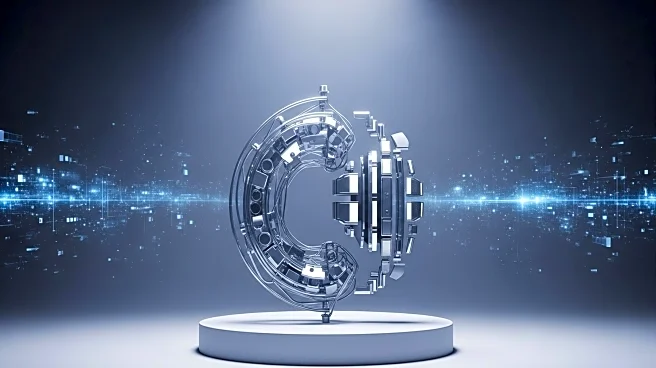What's Happening?
At the Drum Awards Festival 2025, designers discussed the growing influence of artificial intelligence (AI) in the creative industry. While AI is recognized as a valuable tool for enhancing creative processes, there is concern about its impact on originality and human intuition. Vicky Bullen, CEO of Coley Porter Bell, emphasized that while AI can amplify creative ideation, true innovation requires human insight. Brendán Murphy, global creative director at Lippincott, views AI as a tool to enhance human connection and authenticity, rather than replace them. Designers like Leigh Chandler expressed reservations about using AI in the initial stages of creative exploration, preferring to rely on human intuition for moodboarding and ideation.
Why It's Important?
The integration of AI in design raises important questions about the balance between technology and human creativity. As AI becomes more prevalent, there is a risk that over-reliance on automation could lead to a loss of originality and creative conviction. This could have significant implications for brand identity and differentiation, as AI-driven designs may lack the unique human touch that sets brands apart. The debate highlights the need for designers to maintain a balance between leveraging AI for efficiency and preserving the human elements that drive innovation and storytelling.
Beyond the Headlines
The discussion around AI in design also touches on broader ethical and cultural implications. As AI tools become more sophisticated, there is a risk of homogenization in design, where brands lose their distinctiveness in favor of efficiency. This could lead to a cultural shift where creativity is increasingly commodified, and the value of human intuition and experience is diminished. Designers must navigate these challenges by developing skills that emphasize empathy, cultural fluency, and original thinking, ensuring that AI serves as a complement to, rather than a replacement for, human creativity.











